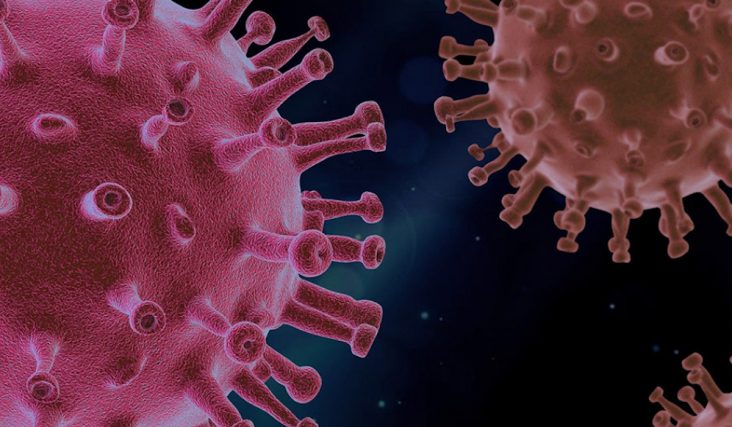ACHI: Number of school districts in high-infection zones quintuple
by January 5, 2022 4:25 pm 794 views

The number of school districts in highly infected communities has nearly quintupled in a week, so all school districts should require masks, the Arkansas Center for Health Improvement president and CEO said Wednesday (Jan. 5).
In a virtual press conference, Dr. Joe Thompson said the number of school districts where 100 or more residents out of 10,000 are newly infected with COVID-19 – or so-called “purple zones” – has increased from five located in the Jonesboro region to 39 across the state in a week. Red zones with 50-99 new infections have increased from 23 to 99. The zones measure the number of district residents, not students, infected.
Thompson said this was the largest one-week increase since the pandemic began. He said the state is experiencing “uncontrolled spread” driven by the omicron variant, which he called a “major threat.”
“With omicron, it’s likely that it’s going to be a short burst, but that burst is going to be strong and unfortunately highly infectious and potentially fatal,” he said.
In the Nettleton School District, which has the most new infections, 3.5% of residents have tested positive in the last two weeks. That is likely an undercount because of the difficulty in securing tests and the number of residents performing home tests, he said.
Thompson said all schools should put in place full mask requirements for all grades and staff immediately; should redouble their handwashing, sanitation, social distancing and ventilation efforts; and should be prepared to institute remote learning for a short period of time.
Thompson said that masks work, vaccines protect individuals and are safe, and that schools are an accelerant for transmission. He said a study by ACHI, the Department of Health, and the federal Centers for Disease Control and Prevention found that schools with full mask requirements saw a 25% reduction in transmissions.
“I think the evidence is overwhelming that masks should be in place and required in all schools. Unfortunately, our state leadership has chosen to not take that action,” he said.
As a result, it will be up to local school boards to enact mask mandates, he said.
According to ACHI, 46 public school districts and charter schools have full mask requirements, 26 have partial mask requirements, and 189 have no mask requirements. But those numbers are changing quickly and are difficult to keep up with. Many districts have policies in place tied to ACHI’s zone listings.
Thompson said individuals should wear N95 or KN95 masks.
“I would encourage everyone when you’re out in the public setting now to have one of the more highly effective masks, because if you’re in a public space, somebody else is likely there with the omicron variant and shedding it into the airspace of that locale,” he said.
Even though the omicron variant is “slightly milder” than previous ones, it will infect more people and lead to more deaths, he said. He said he expects hospitals next week to start to cease elective procedures, while hospitalizations and deaths will increase. Health care personnel are being infected, so they won’t be able to serve patients.
He said symptoms caused by the omicron variant typically appear within 2-3 days of contraction, which is shorter than the 4-5 days associated with the delta variant. The omicron variant typically results in symptoms in the upper respiratory system – congestion, sore throat and dry cough – rather than the pneumonia and deep wet cough associated with the delta variant.
Thompson urged Arkansans to get a booster shot, saying it is required for “optimal protection.” While slightly more than half of the state’s residents are considered by the government to be fully vaccinated with one or two doses depending on the vaccine, only 15-20% have been boosted, he said.
“It is clear from omicron data in other countries – South Africa, Israel, England – that if you have not had the booster shot, you do not have optimal protection against omicron,” he said.
He later said, “The original round of vaccinations frequently does not offer much protection at all against omicron. It’s the booster shot that is required to get optimal protection against omicron to avoid bad outcomes including hospitalizations and death.”
He said the immune system optimizes within 10 days of receiving the booster shot. Individuals can receive a booster shot within 2-3 months of contracting COVID unless they were treated with monoclonal antibodies, he said.
Thompson warned the state is also seeing an increase in flu cases, and in people infected with both diseases.
